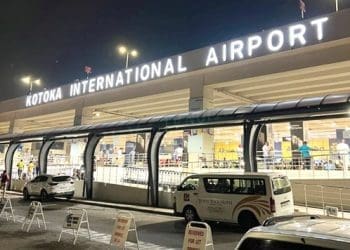The Managing Director of Ghana Water Limited (GWL), Adam Mutawakilu, has confirmed that the Kwanyako Water Treatment Plant in the Central Region is now running at full operational capacity, producing water at 100% efficiency after several months of technical challenges.
The plant, which once supplied safe drinking water to thousands, was shut down by the Regional Security Council and the Ghana Water Company Limited after dangerously high turbidity levels were recorded in local rivers and streams due to mining pollution.
The plant had struggled with extremely high turbidity levels—a measure of water cloudiness—which reached over 11,000 NTU, far exceeding the facility’s processing limit of 2,500 NTU.
These issues significantly disrupted water production and supply to surrounding communities.
Addressing journalists at a press conference in Accra on Monday, October 20, 2025, Mutawakilu explained that the improvement followed a series of technical and engineering interventions, including relocating the pumps from the ground to the surface treatment plant to enhance efficiency.
However, the GWL boss cautioned that the current production capacity may not be sustained throughout the upcoming dry season, as falling water levels could reduce output.
He emphasised that “We had to do re-engineering by bringing the pumps up. That is why we are now able to produce 100% water. The Kwanyako Treatment Plant is now working, with no high turbidity beyond the capacity of the plant. As we speak, the Kwanyako Treatment Plant is producing 100% water. But that will not last long because the water level will drop as the dry season comes in.”
Mutawakilu also appealed to corporate organisations and stakeholders to support desilting works at the plant’s pump intakes, noting that financial constraints make it difficult for the company to carry out the exercise alone.
He further reaffirmed Ghana Water Limited’s commitment, alongside the government, to curbing illegal water connections, improving operational efficiency, and protecting the country’s water resources for sustainable supply.













